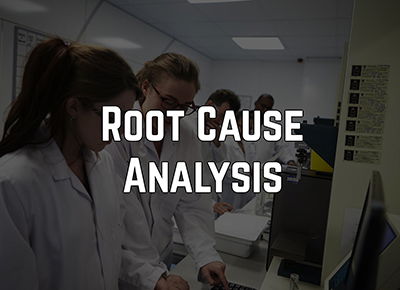3-Hour Virtual Seminar On Root Cause Analysis, CAPA And Effectiveness Checks
🎤 Meredith Crabtree | 📅 September 4, 2024 | 🕒 11 AM Eastern Time US
Description
This comprehensive course offers essential knowledge and practical skills in root cause analysis, corrective and preventive actions (CAPA), and conducting effectiveness checks. Participants will learn systematic approaches to identify root causes, develop effective CAPA plans, and assess the success of implemented solutions.
Through interactive sessions and real-world examples, participants will gain a deep understanding of root cause analysis methodologies, such as the 5 Whys, Fishbone (Ishikawa) Diagram, and Pareto Analysis. They will learn how to apply these techniques to uncover the underlying causes of problems and implement sustainable solutions.
The course delves into CAPA, emphasizing the importance of proactive problem-solving. Participants will learn to differentiate between corrective and preventive actions and develop robust CAPA plans to prevent recurring issues. They will also explore strategies for conducting effectiveness checks, measuring the impact of implemented solutions, and communicating the results.
Course exercises and case studies provide opportunities for participants to apply their knowledge and sharpen their analytical skills. By the end of the course, participants will be equipped with the expertise to conduct thorough root cause analyses, develop effective CAPA plans, and assess the effectiveness of implemented solutions.
This course is suitable for professionals across industries who are involved in problem-solving, quality management, and continuous improvement. Whether you are a team leader, manager, or quality professional, this training will empower you with the tools and techniques needed to address problems at their core, drive sustainable improvement, and enhance organizational performance.
Who Should Attend:
Attending this training is essential for individuals and organizations looking to enhance problem-solving abilities, drive continuous improvement, and improve organizational performance. By participating, you will gain crucial skills in root cause analysis, CAPA planning, and effectiveness checks, enabling you to identify underlying causes, develop targeted action plans, and assess the success of implemented solutions. This training provides a competitive edge by equipping you with invaluable problem-solving skills and fostering collaboration among participants. Don't miss out on the opportunity to acquire these essential skills, improve organizational efficiency, and make a significant impact in your organization's success.
Areas Covered In The Session:
1. Introduction
- Importance of root cause analysis, CAPA, and effectiveness checks
2. Understanding Root Cause Analysis
- Definition and purpose of root cause analysis
- Benefits of conducting root cause analysis
- Introduction to root cause analysis methodologies: 5 Whys, Fishbone Diagram, Pareto Analysis
- Real-life examples of root cause analysis
3. Conducting Root Cause Analysis
- Step-by-step process of root cause analysis
- Gathering data and information
- Analyzing data to identify potential root causes
- Prioritizing and validating root causes
4. Corrective and Preventive Actions (CAPA)
- Definition and importance of CAPA
- Differentiating between corrective and preventive actions
- Strategies for developing effective CAPA plans
- Case studies illustrating CAPA implementation
5. Effectiveness Checks
- Purpose and significance of effectiveness checks
- Methods and tools for conducting effectiveness checks
- Criteria for assessing the effectiveness of implemented solutions
- Documentation and communication of effectiveness check results
6. Course Exercise and Case Study
- Provide a case study requiring root cause analysis, CAPA planning, and effectiveness checks
- Collaborative analysis, development of CAPA plans, and effectiveness check criteria
- Group presentations and discussion of findings


